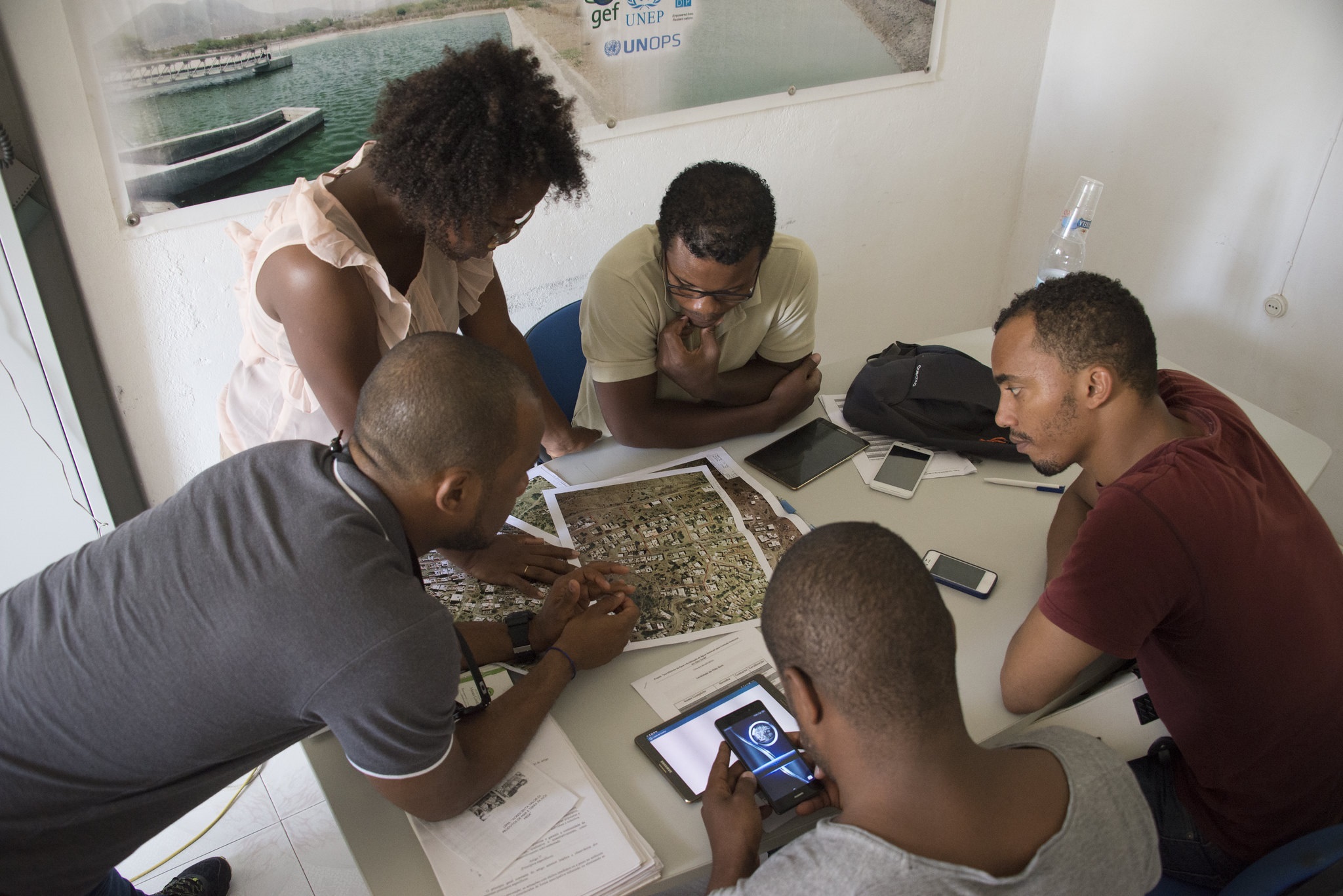How the United Nations Development Programme (UNDP) Global Centre for Technology, Innovation and Sustainable Development is aiding nations, including Small Island Developing States, in their quest towards a digital economy.
Bridging the Divide
April 22, 2022

This interview with Riad Meddeb was originally published in Issue 76 of the Experience Singapore of Singapore’s Ministry of Foreign Affairs.
A digital economy is highly complex, with many components to consider, such as cybersecurity, data, technology governance and artificial intelligence. These aspects — as well as the fast-changing nature of technology — make it tricky to navigate this arena. Enter the UNDP Global Centre for Technology, Innovation and Sustainable Development (UNDP Global Centre for short), which guides countries on their journeys to embrace digitalisation and the new economy.
It is a purpose that the organisation’s Director (ad interim) Mr Riad Meddeb keenly believes in. As he tells Experience Singapore, “The digital economy is a key component of a country’s national development, from leveraging innovation, to shaping the rights and protections to safeguard citizens and consumers.” The UNDP Global Centre, which is a collaboration between the UNDP and the Government of Singapore, does this by providing applied and technical advice on digitalisation. It also deepens countries’ skills and knowledge through training and capacity-building, while fostering partnerships to ensure that digital economies are inclusive and sustainable. “An area of our work that I find particularly important is ensuring that discussions around the technical standards, policies and technologies of the digital economy are not just owned, led, or concentrated in the Global North,” adds Mr Meddeb. “We have to ensure that these aspects are a truly global discussion, to ensure that no one — or any country — is left behind.”
To him, adopting such a global approach is important as no one country has a complete digital economy yet. “We are all very much on this journey together, if at different stages,” he shares, adding that the UNDP Digital Readiness Assessment helps determine which stage each country is at. The assessment provides an overview of strengths, gaps and opportunities for digital development in five areas: people, government, infrastructure, regulation and business.
SIDS: Unique Challenges and Opportunities
While all countries face their own challenges on the path to a technology-centric economy, Small Island Developing States (SIDS) share common vulnerabilities by virtue of their geography. According to Mr Meddeb, “This is a very diverse group of countries, but they face common challenges: they are more vulnerable to external shocks and experience a disproportionate impact of climate change.”
These challenges extend to the cybersphere as well. “These states often share a high level of vulnerability when it comes to their telecommunications infrastructure. Many islands have just a single submarine cable connecting them. As we have seen recently in Tonga, critical services can be interrupted for several weeks when a submarine cable is severed by a natural disaster or other accidents.”
The people factor might also pose a unique challenge to SIDS, continues Mr Meddeb. “Their small size and fragmented economies can make it difficult for start-ups to go to scale to reach profitability,” he says. “And due to their small populations, the fast pace of change in IT, brain drain and, in some cases, insufficient access to advanced IT education, there are a limited number of people in SIDS with the knowledge and skills to address the transformation to digital government and the digital economy.” But he stresses that despite these challenges, some SIDS have raced ahead in their quest to adopt a digital economy. For instance, certain Caribbean states have been among the first in the world to adopt digital currencies, such as the Sand Dollar in the Bahamas and the Eastern Caribbean DCash. Some SIDS are also embracing the metaverse, which is a nascent network of 3D virtual worlds. “The Republic of Palau is launching the world’s first digital residency initiative using blockchain. Barbados will have the first Embassy in the metaverse,” Mr Meddeb elaborates.
Still, the UNDP Global Centre says that more can be done to promote digitalisation. In this vein, it is launching a new course catered specially for SIDS. Titled “Inclusive Digital Transformation for the Achievement of the SDGs and the SAMOA Pathway in SIDS”, it targets civil servants and stakeholders to help build capacity and raise awareness of available tools and resources to support governments in leading the digital transformation journey. “We are delighted to offer the course in four languages: English, French, Spanish and Portuguese,” shares Mr Meddeb. “It is an excellent complement to prepare governments to undertake the UNDP Digital Readiness Assessment, which is often the first step to collaborating on a digital transformation strategy. Additional learning opportunities are also being curated to support more in-depth training around the various topics introduced in the course.”
Participants interested in Inclusive Digital Transformation for the Achievement of the SDGs and the SAMOA Pathway in SIDS can visit https://itu.int/go/SIDSCourse for more information.

 Locations
Locations